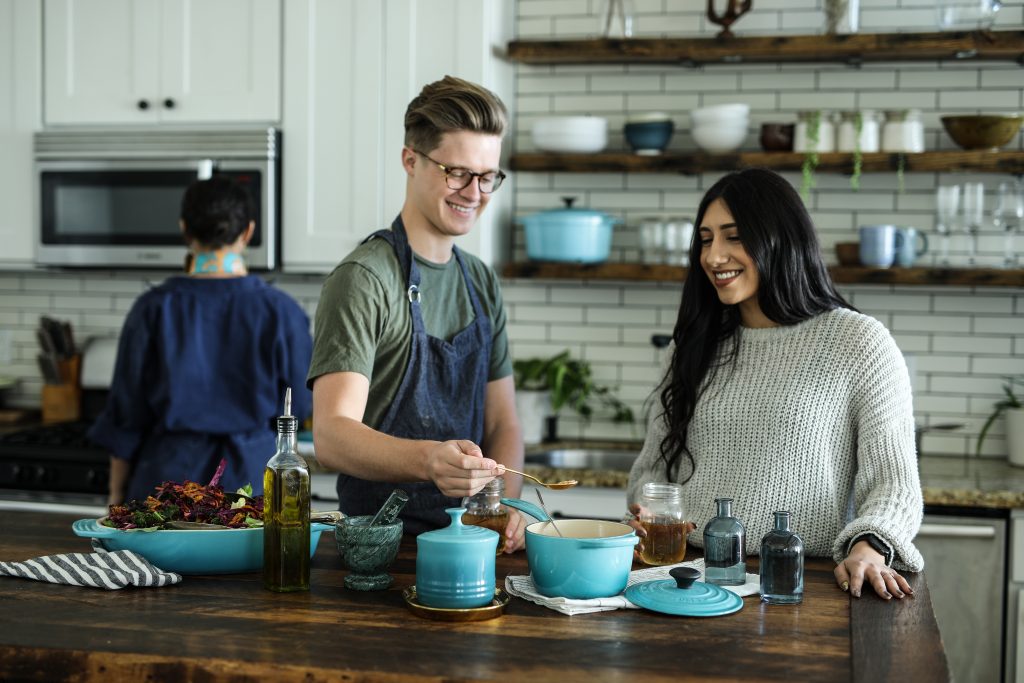This post contains affiliate links. Click here to read my affiliate policy.
Last Updated on April 10, 2023

If you don’t cook much or your cooking is largely restricted to a few familiar recipes, you might assume that making the leap to becoming a more adventurous cook is out of your reach. In fact, if you want to prepare and eat more exciting meals, you absolutely can even if you feel as though you don’t know where to start at first. The tips below can help you dazzle your friends and family and keep you from getting bored in the kitchen.
Familiarize Yourself with Food
A bad recipe can put you off an ingredient, a dish or indeed trying anything new at all, but how do you tell the good recipes from bad ones? If you’re a complete novice in the kitchen, it can help to dip into some cooking blogs and perhaps watch a few cooking shows. Go online and look up half a dozen different recipes for a dish you’re familiar with and you’ll get an idea of the scope of ingredients and techniques people may use. Sometimes, it can also help if you try a dish in a restaurant before you make it at home so that you can get an idea of how it is supposed to taste, but of course this only works if the restaurant does it right as well! You don’t need to become an expert before you start broadening your horizons, but just starting to get a feel for different approaches and cuisines can help.
For instance, one helpful tip when cooking with onions is to find a ready-made minced onion product instead of chopping them yourself to save time and tears. Overall, making an effort to familiarize yourself with food can significantly improve your cooking skills and understanding of different ingredients and techniques.
Splurge on Needed Equipment
Many have been cooking terrific food for centuries on modest equipment, but if there is something you want to be able to do regularly, you may want to consider purchasing specialty equipment. A stand-up mixer is invaluable if you are a dedicated baker while you’ll probably need a pasta maker if you want to make homemade pasta regularly. These can be fairly expensive items, so you might be looking at ways to cut expenses elsewhere to feed your new cooking habit. One fairly painless way to do this might be to reduce some of your bills. If you have student loans, you might be able to pay less monthly with a NaviRefi student loan refinance. With the money that you save, you can afford to splurge. Eventually, you may even decide that you want a full kitchen upgrade.
Practice Makes Perfect
Just as you shouldn’t assume that one failed recipe means rejecting a dish or ingredient forever, don’t expect yourself to do everything perfectly out of the gate. Start with easier recipes and work your way up to harder ones, getting accustomed to such things as timings for different dishes and how quickly it takes garlic to burn or pasta to become overdone. After that you can experiment with luxury ingredients, that will make your cooking more exciting. You’ll also get a sense of what techniques and dishes are more forgiving, what kind of substitutions you can make in a pinch and sometimes, how to salvage a dish gone wrong. You may want to choose a particular focus, such as a cookbook to work your way through or a single country’s cuisine. This can give some structure to your foray into more adventurous cooking.

